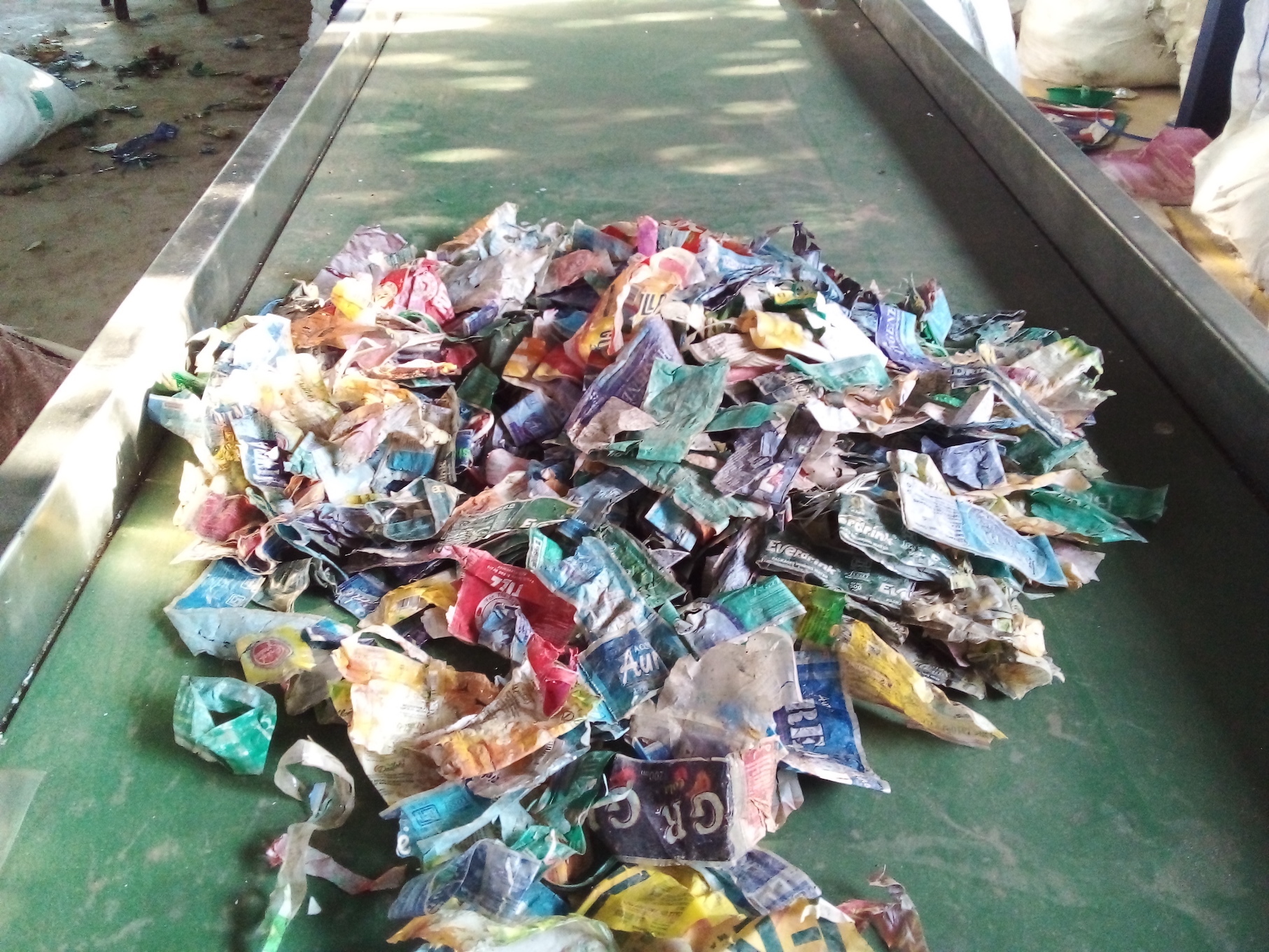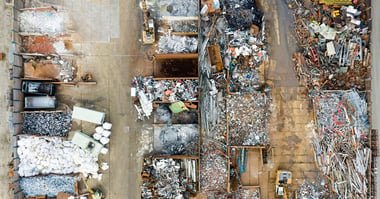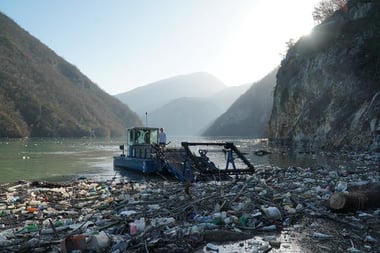When we started CleanHub in 2020, we set out to tackle one of the toughest challenges first: non-recyclable plastics — which accounts for roughly 70% of nearshore ocean plastic.
Our idea was simple: if all plastic materials, including non-recyclables, had value, there would be no reason for them to end up in the environment and leaking into waterways.
By funding waste collection systems that give value to these materials, we've helped brands (and now also individuals) take credible action on plastic waste that would otherwise have no chance of recovery.
But if we’re going to build a solution to help end plastic pollution for good, we have to go further.
We’re now evolving our model to include recycling credits — enabling brands and individuals to fund the recovery of plastics that are technically recyclable, but rarely recycled in practice.
Why the Move to Include Recycling Credits?
From our work in places like the Andaman Islands and Kerala, we’ve seen firsthand that the recycling crisis isn’t just a question of technology. It’s an economic challenge.
Plastics like LDPE and PP (commonly used in flexible packaging) can be recycled. But in many regions, there are no profitable systems in place to do so. Facilities struggle to operate, valuable materials are landfilled or burned, and the circular economy stalls before it starts.
We’re stepping in to change that.
How CleanHub’s Recycling Credits Work
Our recycling credits support the recovery and processing of low-value, flexible plastics — but only where our involvement unlocks true additionality.
We intervene in three specific scenarios:
✅ Lack of infrastructure: Even recyclable plastic is wasted when there’s no local facility to process it.
✅ Economic viability gap: When recycled plastic can’t compete with cheap virgin alternatives, CleanHub helps bridge the gap.
✅ Operational sustainability: We support local recycling partners when their operations can't break even — helping them survive until they can thrive.
We work project-by-project, funding only where our support creates real, measurable impact.
Once these recycling streams become economically sustainable, we shift our support elsewhere — always focused on where we’re needed most.
What This Means for Brands Who Support Us
For brands, this shift unlocks a bigger opportunity to align business growth with environmental responsibility.
- Want to support circularity? Recycling credits now allow you to take tangible action on plastics that deserve a second life.
- Care about credible impact? CleanHub’s verification and traceability ensure your contribution is always fully auditable, so you can report your data with confidence.
- Need to communicate your impact clearly? We help you tell the story of your contribution — from the communities you support to the kilos of plastic you recover.
Whether you're early in your sustainability journey or ready to lead from the front, we now offer a broader toolkit to help you make a difference.
Still Want to Focus on Non-Recyclables? No Problem.
Our core work hasn’t changed. We’ll always prioritize the materials that are most likely to end up in nature and oceans.
We’re currently planning to pilot this approach in Clean Kerala on a small scale, focusing only where our support can unlock real impact.
Ready to Take the Next Step?
This evolution brings us closer to a world where all plastic is either reused, recycled — or never produced in the first place.
If you're a purpose-driven brand looking to lead the way in circularity and ocean protection, we’d love to hear from you.
👉 Book a call to explore how recycling credits can work for your brand.
Or if you are an individual, who wants to recover plastic before it pollutes the environment, sign up here.
Together, we can make circularity more than a buzzword.
We can make it real.
For Clean Oceans,
The CleanHub Team


-3.png)

.webp?width=380&name=Someone-recycling-waste%20(1).webp)
.webp?width=380&name=Recycling-plant%20(1).webp)
.webp?width=380&name=CleanHub-collectors-%20(1).webp)
.webp?width=380&name=Water-bottles%20(1).webp)

.png?width=380&name=CleanHub%20Bcorp%20(1).png)
.webp?width=380&name=Plastic-water-bottles%20(1).webp)
.webp?width=380&name=Beach-clean%20(1).webp)
.webp?width=380&name=warehouse%20(1).webp)
